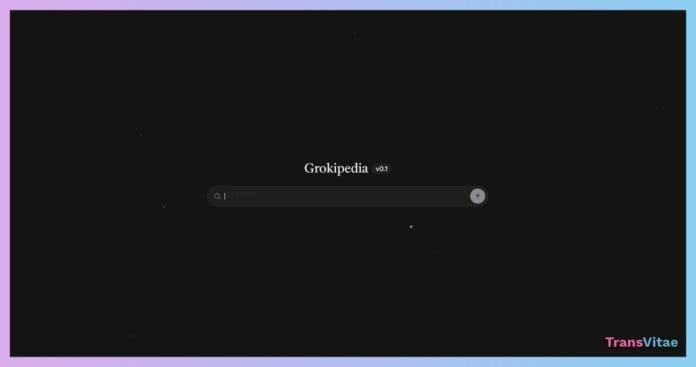A newly launched online encyclopedia called Grokipedia is facing scrutiny from LGBTQ+ advocates and media analysts for biased coverage of transgender topics. Created by Elon Musk’s AI company xAI, the site debuted earlier this week as a “version 0.1” release with nearly 900,000 entries. Musk has described it as a “massive improvement over Wikipedia” and said it was designed to counter what he calls “left-wing bias” in traditional reference platforms.
Musk’s xAI chatbot Grok, already integrated into Twitter, powers and “fact-checks” the encyclopedia’s entries. In his words, Grokipedia aims to reflect “objective truth,” but early reviews suggest its editorial tone mirrors Musk’s ideological leanings rather than offering balanced documentation.
How It Frames Transgender Identity
Readers have noted concerning patterns in Grokipedia’s entries on gender and sexuality. The page on “Transgender,” for example, repeatedly refers to trans women as “biological males.” While this phrase can be biologically descriptive in a narrow reproductive sense, it is often used as a cudgel against transgender people. In many political and social debates, it has been weaponized to deny trans women’s identities, reduce them to anatomy, or frame them as threats.
This choice of wording reflects a larger trend in Grokipedia’s tone, which emphasizes risk, uncertainty, and skepticism over affirmation. The article leans heavily on claims of “low-quality evidence” for gender-affirming care while giving minimal attention to the medical consensus that such care can be safe, effective, and life-saving when administered responsibly. Instead of reflecting lived experiences and research-supported outcomes, the page echoes narratives commonly used to question or delegitimize trans identities.
Elon Musk’s History with Transgender Issues
Concerns about bias are magnified by Musk’s public record. Over the years, he has made dismissive remarks about pronoun usage, supported groups that run anti-trans campaigns, and criticized gender-affirming care for minors. His own daughter, Vivian Jenna Wilson, has publicly distanced herself from him, citing his stance on transgender rights as deeply hurtful.
Given this background, it is not surprising that Grokipedia’s coverage reflects a skeptical and sometimes pathologizing tone toward transgender people. While Musk promotes the site as a neutral alternative to Wikipedia, its content and phrasing indicate an ideological slant that reinforces existing biases rather than challenging them.
Questions of Accuracy and Integrity
Several technology outlets have also reported that Grokipedia appears to copy content from Wikipedia without proper attribution, raising questions about ethics and intellectual property. The apparent repackaging of public information into a closed, privately controlled platform contradicts Musk’s stated commitment to transparency and objectivity.
The Bottom Line
For transgender people and their allies, Grokipedia’s launch is more than a tech story. It is a reminder that control over information shapes cultural perception. When a platform backed by one of the world’s most influential figures publishes content that pathologizes or delegitimizes trans identity, it risks reinforcing misinformation and stigma under the guise of neutrality.
Trans advocates and educators stress the importance of cross-referencing information with affirming and peer-reviewed sources, especially those created by or in consultation with transgender people. Accurate, compassionate representation is not optional; it is vital for public understanding and the well-being of trans communities.
As Grokipedia expands, trans-affirming outlets like TransVitae.com will continue monitoring how it shapes online discourse and will call attention to bias wherever it appears.


